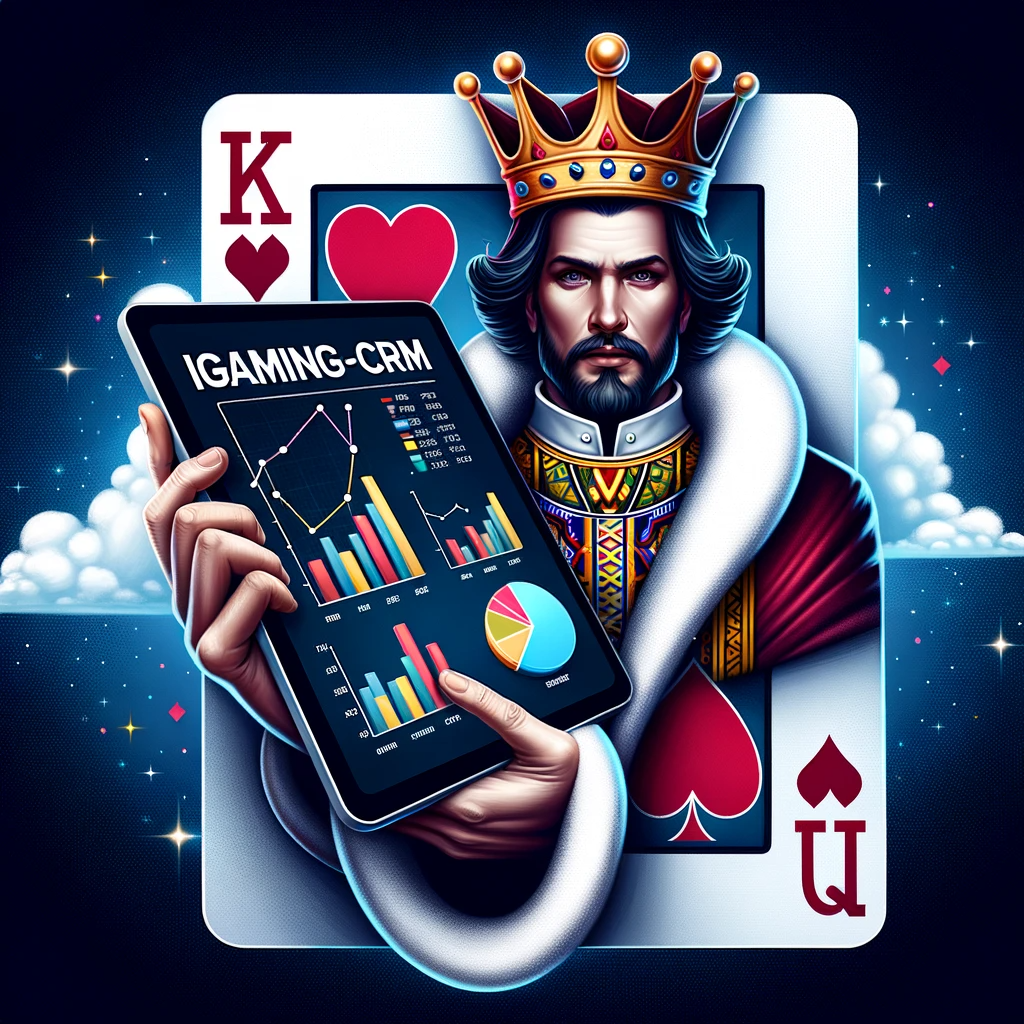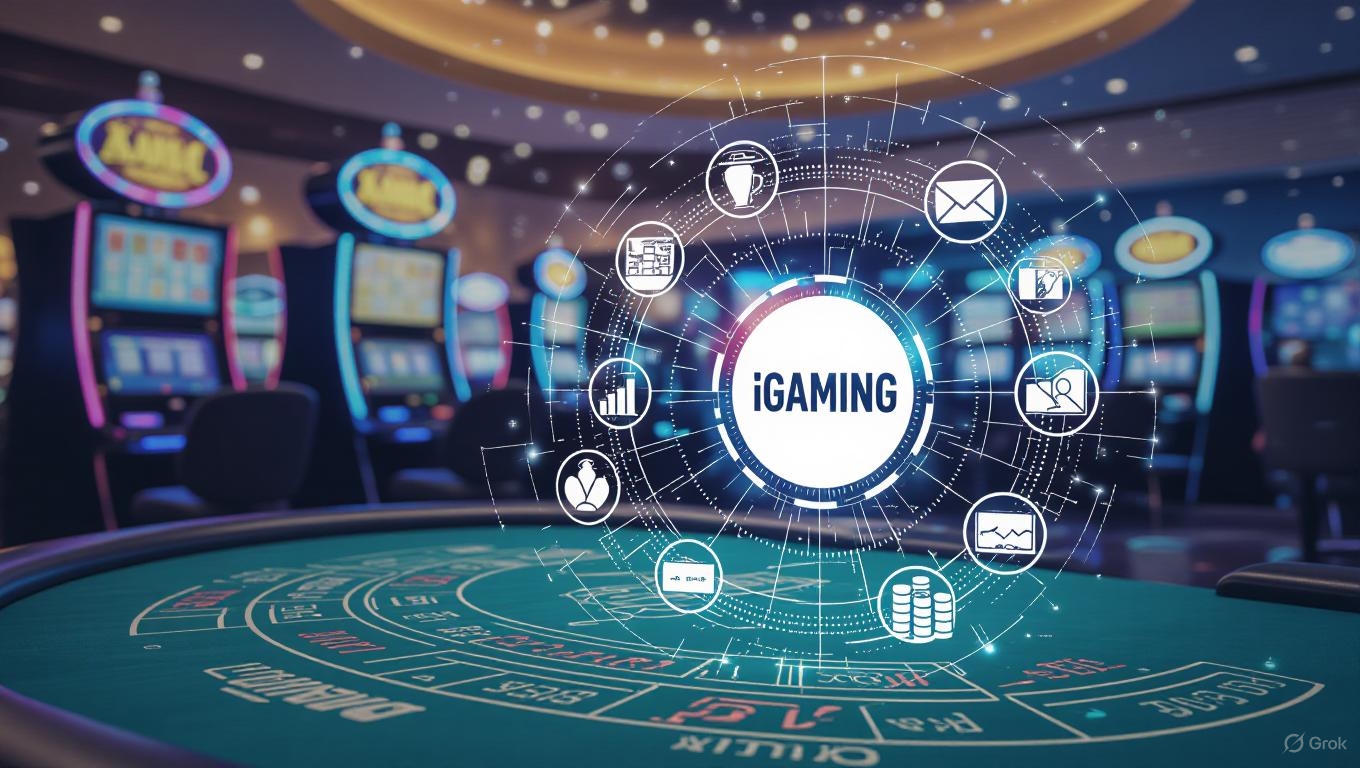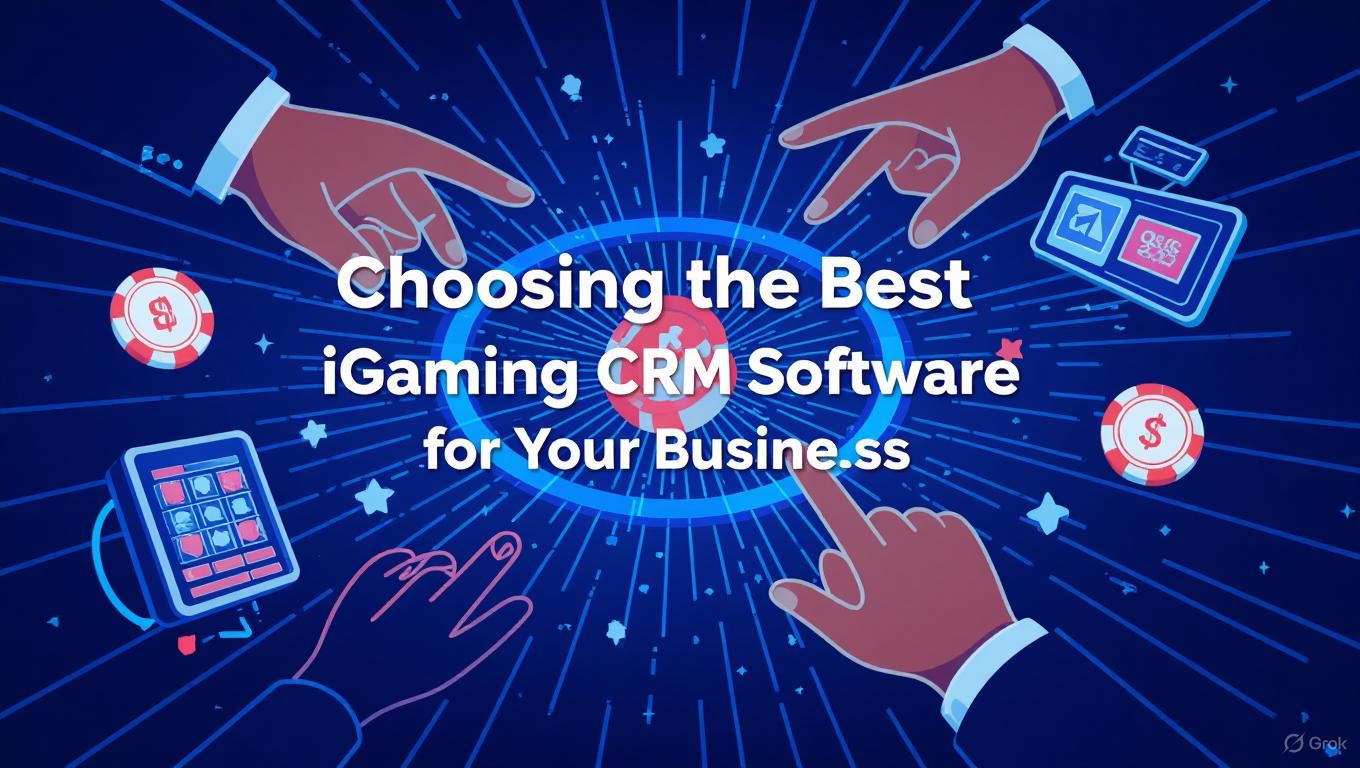How to Integrate iGaming CRM with Other Business Systems

Introduction
As the iGaming industry continues to grow, operators are increasingly looking for ways to streamline operations, enhance player engagement, and improve overall efficiency. One of the most effective ways to achieve these goals is by integrating iGaming CRM systems with other key business tools.
CRM (Customer Relationship Management) software is the heart of player data management, helping iGaming businesses understand player behavior, automate marketing campaigns, and improve customer support. However, to truly unlock the potential of your CRM system, it must work seamlessly with other core business systems, such as payment gateways, marketing automation tools, and customer support platforms.
In this blog, we will discuss how to effectively integrate iGaming CRM with other business systems to ensure smoother operations, better player engagement, and enhanced efficiency across your iGaming platform.
Why iGaming CRM Integration is Essential
Integrating CRM systems with other key business tools is essential for several reasons:
1. Streamlined Data Management
An integrated CRM system ensures that all player data—from interactions, payment history, and customer support inquiries—is consolidated in one place. This eliminates data silos, reducing the need for manual data entry and ensuring that all departments have access to up-to-date player information.
2. Enhanced Player Experience
A seamless integration allows for personalized interactions and more efficient customer service. For example, when a player contacts support, customer service representatives can instantly access their player profile, recent activities, and preferences, enabling them to offer a faster, more tailored response.
3. Improved Operational Efficiency
By integrating CRM with other systems like marketing platforms, payment processors, and loyalty programs, operators can automate key processes, reduce manual workload, and ensure a consistent player experience across various touchpoints.
How to Integrate iGaming CRM with Other Business Systems
1. Payment Gateway Integration
Payment gateways are central to any iGaming business, handling deposits, withdrawals, and transactions. Integrating your CRM system with your payment gateway ensures that payment data is synced with player profiles, providing a unified view of each player’s financial history and engagement.
With CRM and payment gateway integration, iGaming operators can:
- Track deposit patterns and transaction history to identify high-value players.
- Offer tailored promotions or rewards based on a player’s spending behavior.
- Streamline withdrawal processes by automating checks and approvals.
Benefits:
- Unified financial data in player profiles
- Personalized rewards based on spending patterns
- Faster payment processing through automated workflows
Example: PayPal or Stripe integration with CRM platforms like Salesforce or HubSpot CRM helps iGaming businesses track deposits and withdrawals alongside player activity.
2. Marketing Automation Integration
Marketing automation tools allow iGaming operators to run personalized campaigns, send automated messages, and track player engagement in real-time. By integrating your CRM system with marketing platforms like Mailchimp, Marketo, or ActiveCampaign, operators can streamline their marketing efforts and ensure consistent messaging across all channels.
With CRM and marketing tool integration, operators can:
- Automatically trigger personalized email campaigns based on player behavior.
- Segment players based on preferences, activity, and spending habits.
- Track the effectiveness of campaigns and make real-time adjustments.
Benefits:
- Automated marketing campaigns based on player data
- Increased personalization and relevance of offers
- Real-time tracking of campaign performance
Example: Salesforce Marketing Cloud integrates seamlessly with iGaming CRM systems to manage automated email and SMS campaigns that engage players at the right time with the right offers.
3. Customer Support Integration
Effective customer support is crucial for maintaining player satisfaction and loyalty in the iGaming industry. CRM software integration with customer support platforms such as Zendesk, Freshdesk, or LiveChat ensures that agents have a full view of each player’s history, behavior, and interactions with the platform.
With CRM and support tool integration, iGaming businesses can:
- Provide faster resolution to player issues by offering agents a detailed profile with player history.
- Use automated responses for frequently asked questions (FAQs), reducing wait times.
- Integrate live chat features with CRM to offer real-time, personalized support.
Benefits:
- Faster issue resolution with full access to player profiles
- Improved support quality through personalized interactions
- Reduced churn rates by addressing player concerns proactively
Example: HubSpot CRM integrates with Zendesk to provide a seamless customer support experience by syncing player data with support tickets and enabling agents to deliver better service.
4. Loyalty and Rewards Program Integration
A successful loyalty program is essential for keeping players engaged and returning to your platform. Integrating CRM systems with loyalty and rewards platforms like Antavo, LoyaltyLion, or Yotpo ensures that players are rewarded based on their activity and engagement.
With CRM and loyalty program integration, operators can:
- Track player milestones and trigger rewards automatically.
- Offer personalized rewards based on player behavior, such as free spins, cashbacks, or VIP perks.
- Integrate loyalty data with marketing campaigns to provide exclusive offers to loyal players.
Benefits:
- Automated loyalty rewards based on player activity
- Increased player engagement through personalized incentives
- Seamless rewards management across platforms
Example: Integrating Salesforce CRM with LoyaltyLion allows for automated loyalty rewards and seamless tracking of player engagement.
5. Reporting and Analytics Integration
Real-time reporting is essential for understanding player behavior, monitoring campaign performance, and making data-driven decisions. Integrating CRM systems with reporting and analytics tools such as Google Analytics, Power BI, or Tableau enables iGaming operators to get actionable insights into player activity, marketing effectiveness, and financial performance.
With CRM and analytics integration, businesses can:
- Generate custom reports on player engagement, retention rates, and revenue.
- Track player activity and correlate it with marketing efforts to measure ROI.
- Use predictive analytics to anticipate trends and player behavior.
Benefits:
- Comprehensive reporting on key metrics
- Data-driven decisions based on real-time insights
- Improved marketing strategies through detailed performance analysis
Example: Integrating Google Analytics with Salesforce CRM provides a unified dashboard for tracking player behavior across channels and measuring marketing effectiveness.
Conclusion
iGaming CRM integration with other business systems is essential for streamlining operations, improving player engagement, and driving long-term success. By connecting payment gateways, marketing automation tools, customer support platforms, and loyalty programs, iGaming operators can offer a seamless and personalized experience that keeps players engaged and loyal to the platform.
When selecting CRM software for your iGaming business, ensure that it integrates smoothly with the tools you already use, allowing for efficient workflows and data management. With the right integrations, your CRM system will not only streamline operations but also enhance the overall player experience, leading to higher retention rates and increased revenue.
Get Started with iGaming CRM Integration Today
Ready to integrate CRM solutions with your iGaming platform? Subscribe to our newsletter for more insights on CRM integration for iGaming, or download our guide to help you choose the best CRM platform for your business today!







